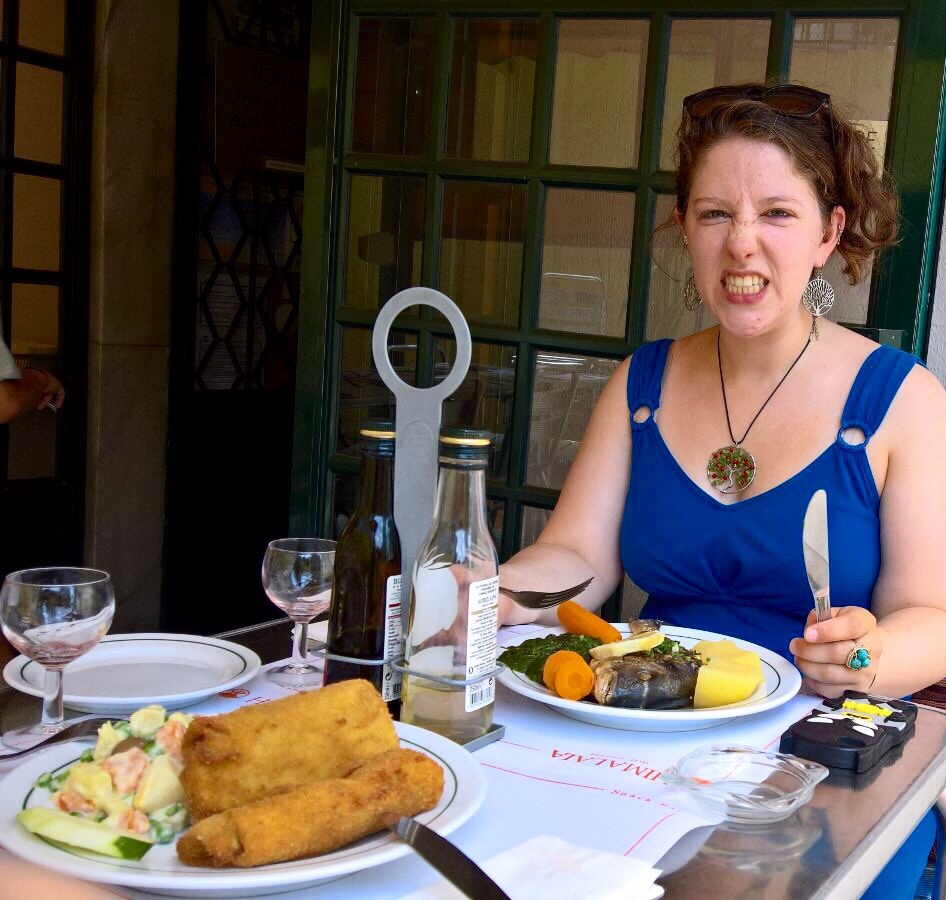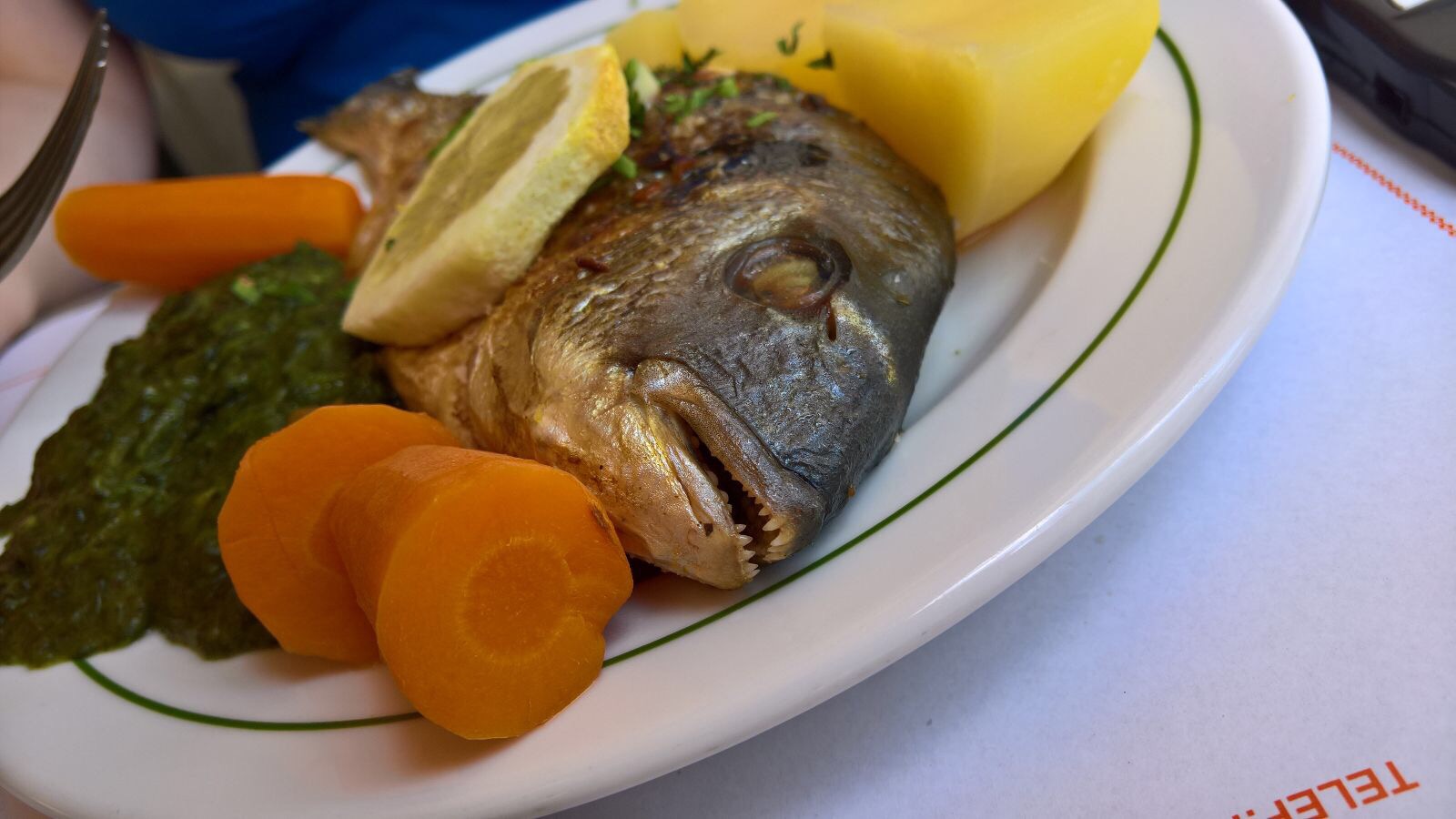This post isn’t going to be what you expect. What you will discover is that before moving abroad, I had quite a sheltered life.
But I didn’t know that I lived a sheltered life – and I kinda forgot about it until a few days in to our New York vacation. I think many Americans live this kind of life, some more or less than others.
In this post I want to focus on the themes of (1) the US’s world-famous consumer culture and (2) the fact that whole-body health isn’t as much of a priority as some people claim it is / as it should be.
(2), in connection with health care, has been discussed here, and as for (1): It’s not a secret that American life, particularly in cities and suburbs, is largely based on convenience and comfort. This means, for one, that we expect to be able to have a variety of choice, prices, and places to buy things, including options where we don’t have to leave our car for or go anywhere to buy (online or drive-thrus). We expect our shop assistants and customer service reps to be cheery and accommodating, especially because we should be able to complain successfully if we didn’t get what we wanted.

But I also suspect we just don’t want to try that hard. We work really hard as it is and we want other things to be made easy for us (as you will see).
Until I moved abroad, I thought this was all well and good, the way things should be, as it made my life easier, and what’s so bad about that? (In theory, it’s great. And I think it’s at least in part why a lot of people move here – to have an easier life. Who wouldn’t want that?)
But it’s still funny that my boyfriend, who laughs about these American ways, always calls the American customer service reps instead of the Czech ones. (They are friendlier, more in-the-know, and accommodating, according to him.)
Here are six ways I couldn’t “take shelter” once I moved abroad, which have come to light again in the last week.
*
When I moved to CZ,
I ate grapes with seeds for the first time
If you aren’t American (or Canadian, I don’t know), you are probably thinking, WHAT?

This seems so basic. But we can’t be bothered to take the inedible parts out of our fruit if we don’t have to. You definitely see seedless grapes more than you’d ever see the normal varieties with seeds. I’m not even sure I knew that grapes had seeds naturally

Also, children are told a myth about watermelon – if you eat the black seeds, you’ll grow a watermelon in your tummy. Nobody wants that, so we spit them out. I was extra specially paranoid about this. I had no idea that literally nothing will happen to you if you eat them.
I ate fish with bones
If you’ve been in CZ for any length of time, you have had carp. It’s *the* Czech fish, and traditional at Christmastime.
lidovky.cz
I was so excited to try this traditional food, but I was warned – there are TONS of tiny bones, so I’d have to be careful. I had never eaten fish with bones before!

I’m pretty sure I took the longest time at the table. We all used our hands, but I inspected every bite and pulled out all the bones, placing them delicately at the side of my plate. I was convinced I would stab myself in the cheek or through the tongue and spend Christmas Eve – the most important part of Czech Christmas – in the hospital. I looked around at all the other people happily eating, pros at this already having done it their whole lives, and I felt miserable.
Fried carp is delicious, but it’s a real bummer for an American who’s not used to actual fish.
I don’t know why, but I really think for the sake of convenience, most fish are deboned before being sold in supermarkets or served in restaurants. It’s really uncommon to encounter a fish with bones, and maybe the uninitiated would just avoid those fish to cancel the need to constantly be poking their meal.

I blew my nose loudly in public
This is one I literally didn’t realize until yesterday evening. I’ve developed a minor cold being here (I haven’t stayed up til 1:30am every night for a long time… yeah, I’m a grandma), and while eating out with friends and family last night, I blew my nose loudly at the table.
Everyone stared at me.
I stared at them.
What do they want from me? I wondered in my head.

I forgot how strange it is to draw attention to yourself when you are congested. At home you can do what you want, but in public, Americans blow very lightly for thirty seconds at a time, trying to be extremely nonchalant as they try dislodge the guck in their sinuses.
In high school, you’d only hear people in class quietly sniffing many times and you’d know they were sick. One time in my Spanish class, a kid was blowing his nose so loudly the teacher asked him to leave the classroom to do it. In contrast, I remember that when I first started teaching in CZ, it could happen that the class would be (according to me) interrupted every few minutes by someone loudly blowing their nose. I thought this was extremely rude, but when it happened a million times in many different classes I realized that it’s just normal and no one is expected to be polite about their congestion. 😛 (Better out than in.) I must have picked up the habit! (Another weird thing is that no one says “Bless you” when you sneeze.)
I saw a dead animal I would later eat
I actually really respect vegans and vegetarians, and spend a lot of time wishing I had the willpower to be one. However, I do like meat 😦 and Czech cuisine is full of it. One positive thing is that in Czech culture, it’s quite common to see, and even raise, the meat you’re going to eat.
Remember the carp I mentioned? It’s common for people to buy a carp before Christmas, let it swim around in their bathtub, and then smash it on the head to kill it before cooking it for Christmas dinner. (I’ve heard a lot of stories from traumatized friends who didn’t know what was going to happen to Little Carpy.)
As another example, there is an event called zabijačka (which often takes place around Mardi Gras), when families raise a piglet that they will later kill – sometimes they’ll do it themselves, or they’ll call someone to take care of it – and they use every part of the meat for a feast. Fat (in the farm of sadlo and škvarky), blood (blood soup), brains… all of it.

As a child (and adult), if I saw a whole animal hanging in a shop window, I would turn away disgusted. How could anyone make me look at a dead animal? That’s horrible. In my personal experience, my boyfriend’s grandmother raises chicken and rabbits. I remember the first time I accidentally looked into a pot in the sink, where a whole skinned rabbit was soaking for a future lunch. Oh my gosh. It looked so different than Mr. Fluffy looked in real life – it was horrible! But I made myself continue looking.
I’m a carnivore, I told myself. I eat meat. I have to keep looking. If it’s been sacrificed for me, it’s only fair to stare my food in the face.
I stayed absolutely silent and still in a restaurant/shop
Another reverse culture shock – when we were out to eat last night and wanted the check, one person in our party lifted their hand and waved enthusiastically at the waiter.
I literally cringed.

I can’t imagine doing this anymore. In Europe, you have to be patient. All the smiling and waving and angry looking in the world is not going to make the waiter come over. It can be frustrating if you’re in a hurry, but hey, we have nowhere to rush to and it was your choice to eat out. The waiter is busy and will come to you as soon as s/he is done tapping 50 beers and brewing 50 espressos.
In shops, you are expected to wait until the shop assistant has time for you. If you can’t, you’re going to have a very hard time getting what you want. Doing anything other than waiting patiently will get you a “not amused” look – and yelling about talking to the manager is not going to help. In small town shops, that person might be the manager.
I lived without a car
In the suburbs where I grew up, the bus and train are majorly inconvenient, and the train is expensive. Car is the transportation of choice even for short distances. In CZ where I live, public transportation is very dense, very convenient, and not super expensive.

To explain the reverse culture shock, to get back and forth from where I live on Long Island to Penn Station in Manhattan (32.5 miles), it costs $19.50 round trip. From Tišnov to Brno – the second-largest city after Prague (25 miles), it’s 78-96 czk, or $3.50-$4.30, round trip. Both are a trip of 40 minutes by train. Yeah… I – and my bank account – are a little in shock.
Locally in CZ, I love to take the train, and when I travel further, I’m a bus person all the way (even when it takes me 14 hours to get somewhere).
When I can walk somewhere, I do, especially in Manhattan and Brno. Manhattan is quite walkable on a cooler day – not long trips spanning the whole island, but a few tens of blocks are not so bad – and Brno is very walkable. But my point is that walking to the supermarket in the suburbs is much harder, whereas in the small town in CZ where I live, it’s the only option for a carless me 🙂

Lots more reverse culture shock to come!


[…] I was lucky I moved to a place full of people from across the country, which meant some splendid culture shock. Of course, comparisons always are there, but the richness of a new living experience such as mine […]
LikeLike
[…] live abroad, you are bound to learn new perspectives you never encountered before (for me, that was the 6 things I’d never done before moving to Europe). Cultural immersion can open your eyes to a […]
LikeLike
[…] can definitely relate to that, having experienced cultural immersion in Czech Republic as well. It sounds like exploring and processing cultural differences related to sex and gender […]
LikeLike
Oh, I had a good laugh! Love this one very much, Chloe. 😀
LikeLike
[…] we were hungry and checked out a tip for the locally famous Misty Moonlight diner. Now I’m big on diners as it is, but this one is a truly classic 50s-style diner, complete with pop culture references and all (a […]
LikeLike
Wow, I have never thought about these little things – CZ x US before!!!! I loved the way you explained everything, it will be very interesting for me to come back home after a year and experience the difference in both cultures 😊.
I’ll definitely keep reading your posts since they’re all written in such entertaining way 😍
LikeLike
you’re already in the States, right? haven’t gotten much more time than a glance at your posta recently, but they’re on my to-read list! 🙂
LikeLiked by 1 person
I watched the TV show Bizarre Foods (of Andrew Zimmern) for some time and enjoyed it. You know what — I am now open to many food items you talked about after watching Bizarre Foods. 🙂
Thank you for writing on such exotic experience. Have a wonderful week.
LikeLiked by 1 person
thanks Settle in El Paso family! 🙂
LikeLiked by 1 person